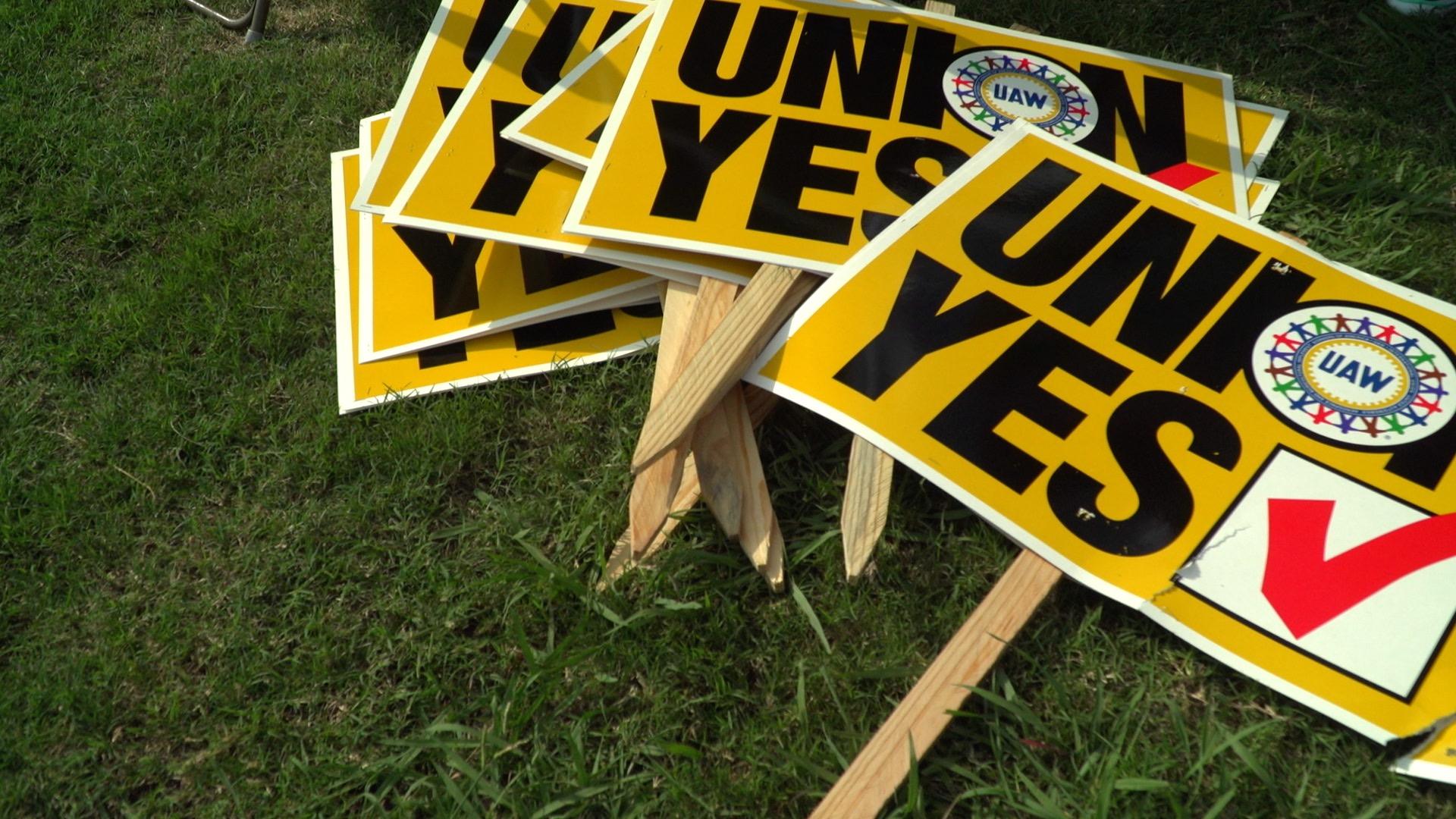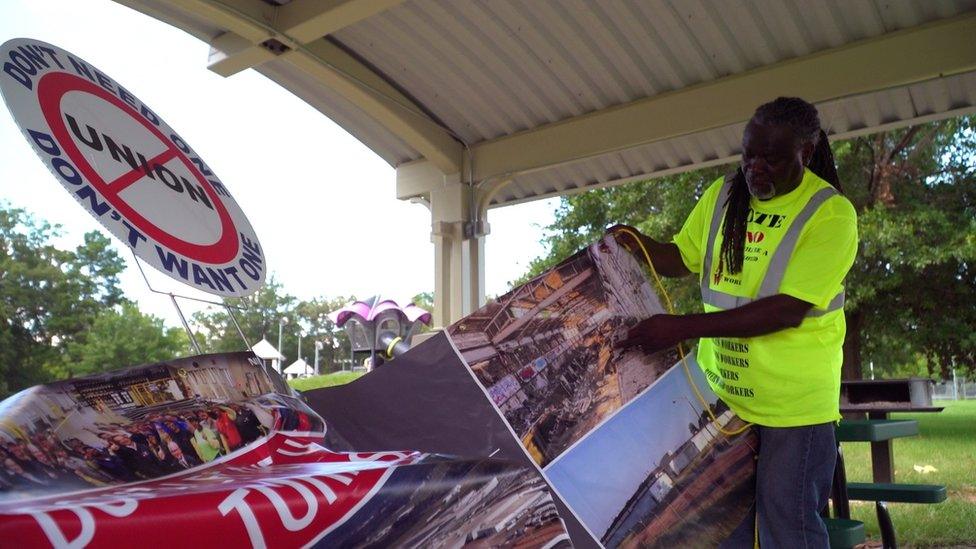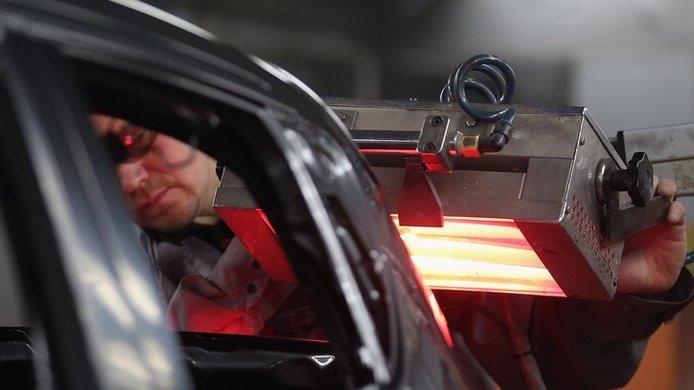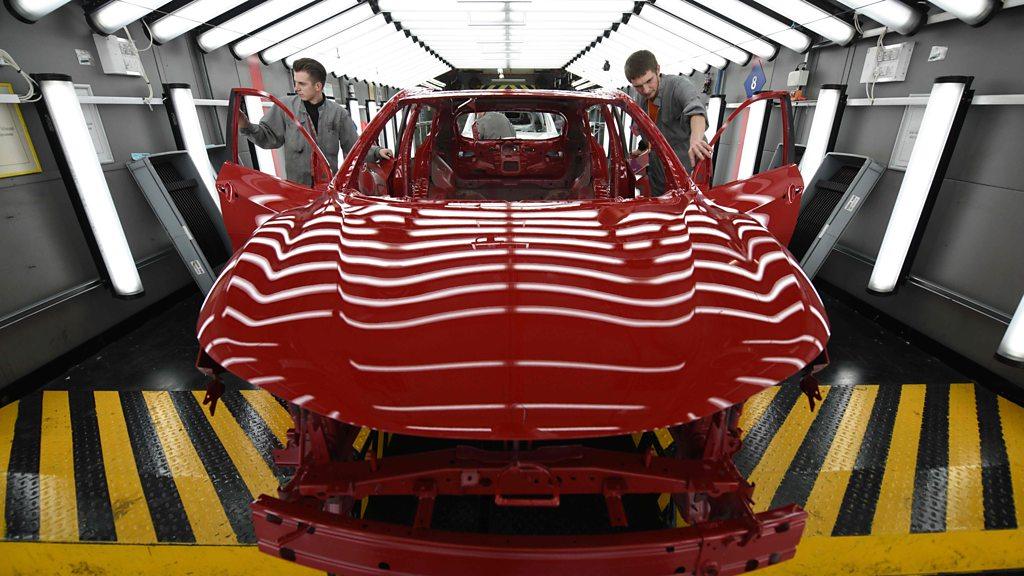The racially-charged fight for a union
- Published
UAW vote at Nissan: The racially-charged fight for a union
It's a warm Sunday in Canton, Mississippi, and in a field about two miles (3km) from the Nissan plant, the crowd of workers is angry.
One wears a T-shirt reading "vote yes," while another leads the group in a rousing song about "knowing your worth".
Welcome to the front lines of one of the nastiest labour fights in the US.
On one side, these aggrieved auto workers are demanding better pay and benefits via unionisation. On the other, French-owned carmaker Nissan, which claims organising could kill jobs.
The bitter, 14-year battle is set to climax on Thursday and Friday when the 3,700 workers vote whether to join the United Auto Workers (UAW) or not. This Nissan plant in Canton is one of three around the world that is not unionised.
Show of support
"I want to have a voice in the plant," Nissan employee Robert Hathorn told the BBC.
Nissan's use of temporary staff has energised people here. These workers earn less than long-time employees and have worse benefits.
"To me it's not fair," said Nissan worker Eric Hearn.
"What we're doing is looking for fairness," he added.

Tensions have escalated ahead of the vote.
Workers say Nissan has fought them every step of the way, threatening them with loss of wages and plant closures.
"You know they're pulling workers in one-on-one conversations," said Travis Parks, a Nissan employee and union supporter.
He said he was told: "You might lose benefits if you form a union. You might lose this. You might lose that."
To get its message across, Nissan has posted anti-union messages inside the factory.
A spokesperson for Nissan told the BBC that voters have the right to know the company's perspective.
The Japanese carmaker warned that the presence of the UAW union could harm the plant's global competitiveness.
'Feeding families'
When Nissan opened the plant in 2003, the Mississippi state government gave the company $1.3bn in tax breaks, in the hope that it would provide well-paying, full-time jobs to the community.
"Nissan is the best thing to happen to the state of Mississippi," said Tony Hobson, a Nissan technician.

Tony Hobson says Nissan is the "best thing to happen to Mississippi"
He's been with the company for 15 years and is firmly anti-union.
"We have something to lose. We are feeding families here," he explained while wearing a T-shirt with "vote no'" emblazoned across it.
The UAW has worked for years building support in Canton.
Past efforts to organise at Nissan, Volkswagen and Mercedes, to name a few, have been pushed back. In part this is because the message the South sent to foreign manufacturers was: "Come here, and we'll keep unions out."
Facing a political climate hostile to organised labour, supporters in Mississippi have linked unionisation to civil rights among the plant's majority African-American workforce.
"It's about inequality which is about civil rights," according to Mississippi minister Dr Isiac Jackson Jr, chair of the Mississippi Alliance for Fairness at Nissan.
He has memories of growing up in Mississippi during the civil rights movement of the 1960s.
"When blacks would go to register to vote, somebody might come by their house burning a cross or wearing a hood," he said.
"Now they don't wear the hood or burn the cross but they come by saying we're going to close the union, we're going to close the plant."
Game changer?
Nissan worker Tony Hobson calls that the biggest falsehood of all.
"Slaves don't make what we make," he said. "Slave labour is like what they make at these fast food restaurants."
A win at Nissan could be a game changer.
The UAW has never won a union vote at any of the South's foreign-owned car assembly plants.
In Canton a victory could provide a model for organising across the rest of the South.
- Published9 August 2016

- Published27 October 2016
